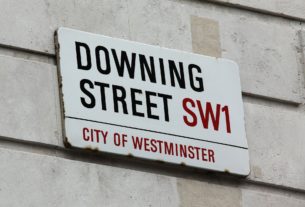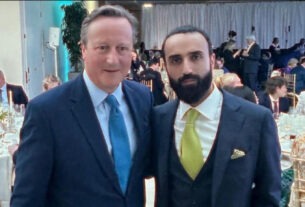Brexit has taken a back seat recently, with the extended deadline – until Halloween – reducing the urgency. This has seen the question of a second referendum being raised again but has also seen the idea of Brexit at all coming under increasing scrutiny.
After the formation of the recent Change UK/Independent Group party and Nigel Farage’s Brexit party the camps on either side of the debate have become increasingly hostile to each other, but relatively little debate centres on the EU itself.
Arguments of democracy being surrendered – by those with little understanding of the prevailing trustee model of democracy – along with character assassinations of those leading Brexit, the actual arguments over the merits and demerits of Brexit have largely been forgotten.
Let’s revisit these arguments – both for and against – and see why the descending of this debate has been an utter national embarrassment.
A clip of Nigel Farage claiming that Brexit would solve ‘none’ of our domestic issues of poverty and inequality, recently made the rounds online, causing outrage and further driving a wedge through the heart of British politics. Before the 2016 vote it was largely accepted by the leaders of Brexit that our economy would take a short term hit, but the opportunities would be endless.
However, as the subsequent three years have shown us, opportunity has not exactly been forthcoming. Before Brexiteers scream ‘well we haven’t actually left yet’ I am fully aware that our current status has still prevented us from striking external trade deals – yet that hasn’t stopped door after door being slammed in the face of our government.
The commonwealth was the source most commonly cited by Brexiteers about the future trade opportunity, however, the subsequent three years have shown us that the commonwealth have moved on – we no longer live in the 20th century.
Australia and New Zealand – where I have spent 6 months of the past year – particularly see Britain as irrelevant to their own destiny. Both the Canberra and Wellington governments are increasingly aligned with the Chinese economy, relying heavily on their exports to central Asia for their trade. This is trade which, given the impact of geography, is far more cost effective for the former British colonies. This is compounded by a mood of apathy towards the British economy. Although culturally aligned with the United Kingdom, no longer is much the commonwealth economically aligned with the UK – an issue that is far more pronounced in the likes of India and the Caribbean. That future economic utopia is unlikely to be forthcoming.
While trade is only a small part of the economic pie, the 2016 referendum made it seem as though the only source of economic power was trade. A nonsense given the trade deficit that powerful global economies such as the UK and USA currently operate with. What is significant particularly for the UK economy is the financial and services sectors.
Brexit was once again supposed to give us long term success in this area: allowing London not to simply remain the EU’s chief financial powerhouse, but become a global behemoth equivalent to New York, Singapore or Hong Kong. The crux of this argument is that the UK can retain its ties to the EU, still acting as a power base for UK business, but also expand its global reach – another reality that looks unlikely to be forthcoming.
Given the difficulty over the past three years of striking a deal with the EU, the UK has seen countless companies either leave the UK market, or sound out the possibility of moving. This is the result of speculation over the type of Brexit, which may actually ensure lesser access to EU financial marketplaces for an international company to set up with an existing powerhouse that has a secure trade deal with the EU.
Although Brexiteers often argue that such business flight is the result of other factors – which do play a role – each business, whilst factoring in the cost of Brexit calculated that it is more profitable to move elsewhere. Yes, Brexit is not solely responsible for the likes of Dyson or several banks to move their headquarters out of the UK, but had the vote gone the other way in 2016 would there be such an exodus?
Since before the referendum, I have always maintained that there was never an economic argument in favour of Brexit. Yes, there are legitimate reasons for someone to want to leave – the EU is not perfect – but the economy was never one of them. Despite Michael Gove infamously claiming that people have had enough of experts, experts are still experts – and when the overwhelming evidence, which has only been compounded since 2016, states that the economy will be harmed, the economy, in fact, will be harmed.
As I stated, the economics of the situation is cut and dry; when it comes to the economy, I see very little in the way of legitimate argument in favour of leaving.
Ideas such as fishing quotas, and excessive bureaucracy have always made sense as arguments, the EU after all has many faults that need addressing, with those that voted leave on the back of such arguments having a clear point.
Debate after all is about two sides and their opposing arguments on a matter, it is not about the very nature of facts as politics has descended into in recent years. Some arguments are clear and others are not, Brexit as being negative for our economy is clear, the EU being a positive institution on the whole, is not – and where the debate should always have been had.
Another clearly disingenuous argument made in favour of Brexit was the unelected bureaucrats, which spoke directly to the xenophobia of some who voted leave. Let me be clear, this is not stating that all Brexiteer’s are racist, they are not – although some may be – it is stating that the arguments against the unelected bureaucracy were clearly underlined by a xenophobia and a British post-war feeling that we are somehow inherently better than Europeans.
I state this because the ‘unelected bureaucrats’ who head up the European Commission, those who were most ferociously criticised by the anti-EU campaigners are elected in a manner nearly identical to our own government.
Theresa May came to power directly as a result of the referendum, for almost a year she was elected by nobody but a handful of Conservative MPs who chose her to lead the party. In fact, a Prime Minister is only ever elected by around 100,000-200,000 Britons – their constituents.
Beyond being elected as an MP they are simply selected by their party, put forward to face a ballot amongst the parties’ members, which will install them as party leader and prime minister. But sometimes this doesn’t even make it to the members, as was the case with Theresa May.
This is strikingly similar to the election of EU commissioners, who exhibit executive branch of the European Union. Members of the European Parliament elect the commissioners, Members of parliament are elected by their constituents. This is almost identical to the UK parliament, yet beyond the Green Party leader Caroline Lucas’ recent viral comments on BBC Question Time, our system is rarely criticised.
Why is this xenophobic? Well when Nigel Farage and Boris Johnson start to call the prime minister an unelected bureaucrat I may well take back this statement, but until then, the only real difference between Theresa May’s government and President Jean-Claude Juncker’s commission is the nationalities of their incumbents.
This British exceptionalism largely built on the back of the post war period and is largely unfounded – something that has been laid bare during the farce of Britain’s handling of the Brexit process. Again a largely illegitimate argument.
Revisiting these arguments is important in understanding just how farcical the current situation is. The fact that Brexit largely was won off the back of ridiculous claims of a stronger economy and unelected bureaucrats is patently false and really shows how far down the rabbit hole we have descended – when the Brexit party are threatening to go to Europe and disrupt all legislation until they free us from the prison, they hold us under.
With two days until the local elections taking place across much of the UK, conservative politicians have been begging the public to put Brexit aside for one day and avoid punishing them for the current mess – I am directly referring to Jacob Rees-Mogg’s recent plea to do so, despite calling for us to disrupt the European legislative process just days before.
This appears to be extreme hypocrisy, which seems to be synonymous with the North East Somerset MP these days. It is okay to disrupt Europe, but unacceptable for the public to hand out a lashing to the government despite many of its members campaigning on the back of false arguments and sending us into this situation.
If we have learnt anything over these past three years, it is that Brexit is bloody barmy.
______________________________________________________________________________
Calum Paton is a History and Politics student at the University of Warwick. His writing focuses on American and British politics. Twitter: @Paton_Calum
Widget not in any sidebars




